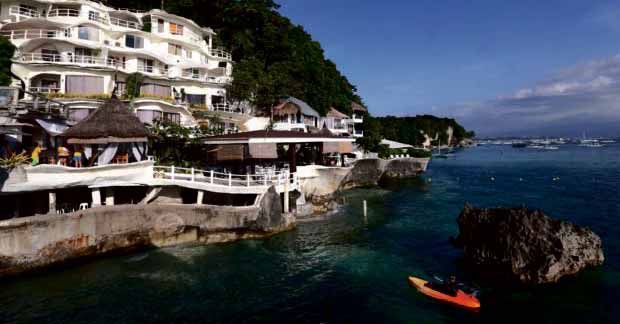Trouble in paradise: Understanding the shutdown of Boracay Island
Boracay is a tropical island in the Aklan province internationally recognized for its sandy white beaches and thriving nightlife.
“While only 7 km tall and at its bikini line 500 m wide, tiny Boracay is the Philippines’ top tourist draw, [fueled] by explosive growth and a tsunami hype,” said travel guide book publisher, Lonely Planet. “The [center] of the action is dreamy White Beach, a 4 km, postcard-perfect stretch of sand lined from one end to the other with hotels, restaurants, bars and dive shops several blocks deep.”
“After perfect sunsets, live music breaks out, and fire dancers twirl their batons. The party goes on all night.”
In a report by ABS-CBN News, an average of 14,182 tourists stay in Boracay daily for a three-day-two-night trip. Meanwhile, 70,979 tourists joined in the festivities during the “Laboracay” weekend from April 30 to May 1, 2017, which was around 15,000 more than in 2016. Around 10,000 kilos of trash survived the “Laboracay” weekend, however.
Violations
Moreover, upon inspecting the resorts along the beach, Environment Secretary Roy A. Cimatu found that some violated road easement rules and prohibitions against illegal discharge of waste water and building establishments on wetlands.
Of the 150 establishments recently inspected, only 25 were reportedly found to be connected to the sewage line, prompting President Duterte to accuse hotels, restaurants, and other businesses of dumping sewage directly into the sea and turning it into a “cesspool.”
With these supposed violations, Presidential Spokesperson Harry L. Roque Jr. announced that Boracay Island would be closed for rehabilitation for six months starting April 26.
CNN Philippines reported that a complete shutdown of Boracay will deprive businessmen and locals of their livelihood. Said shutdown may lead to job losses for some 36,000 people and P56 billion in lost revenues.
Compromise
“We were expecting some sort of compromise between a partial or total closure or at least given more time to adjust to a closure, but I guess the [P]resident made up his mind and we’re taken aback by it,” said Jose Clemente III, president of the Tourism Congress of the Philippines, in an interview with ABS-CBN News Channel’s “Business Nightly.”
“If given the opportunity, yes, we would like to present our case. The private sector did not have a face-to-face dialogue with the [P]resident. We were doing it through the various agencies. Unfortunately, I guess this is the result of the recommendations of those agencies,” Clemente had said.
Contrary to Clemente’s grievance, the exchanges between the agencies’ representatives and Boracay’s stakeholders are equivalent to a face-to-face dialogue with President Duterte. The President is presumed to have delegated the task of conducting dialogues with stakeholders to agencies’ representatives under his direct control.
In a long line of cases, the Supreme Court held that as the President cannot be expected to exercise his control powers all at the same time and in person, he will have to delegate some to his Cabinet members.
Unless there is strong proof to the contrary, the President and the agencies under his direct control are presumed to have acted in the regular performance of their official duties in exerting efforts toward the complete shutdown and rehabilitation of the Boracay Island.
Social function
It should be emphasized that while entities and persons have the right to use the properties on which their establishments stand, such right bears a social function.
The 1987 Constitution states that the use of property bears a social function, and all economic agents shall contribute to the common good. Individuals and private groups, including corporations, cooperatives and similar collective organizations, shall have the right to own, establish and operate economic enterprises, subject to the duty of the State to promote distributive justice and to intervene when common good so demands.
The establishment owners’ right to use their properties is likewise subject to the people’s right to a balanced and healthful ecology. The constitutional mandate of the State to protect and advance the right of the people to a balanced and healthful ecology exists from the inception of humankind.
Such right, which carries with it the correlative duty to refrain from impairing the environment, concerns nothing less than self-preservation and self-perpetuation, which predate all governments and constitutions.

